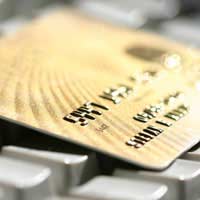Internet Shopping and Internet Fraudsters

Internet shopping is one of the great conveniences of modern life. It is quick, it is easy and it makes hunting for elusive items in shops a thing of the past, as with the click of a few buttons, it can be ordered, direct to your home, without you having to leave the comfort of wherever you are. But while it has undoubtedly changed the face of retail across the world forever, for those who are inexperienced with it – and even those who are in some cases – internet shopping is rife with danger, not least of all because of internet fraudsters. Of course, most sites that we know and love are perfectly reputable and you would be foolish to never shop online because fraudsters exist – after all, there are criminals in all walks of life, but that cannot stop us from going about our everyday business. But, if we take a little time and care before typing in all of our worldly details, we can significantly reduce the chances of being defrauded online.
Credit Cards
One of the most common fears for people who have not shopped online before is the fear of typing their credit card details or bank details into a webpage, and not knowing who is looking at them. And this is not an irrational fear. In the wrong hands, our bank details are a risky set of details to give away. But there are a few steps one can take to minimise the risk. Firstly, and the most obvious step to take, is to only shop at reputable places. All of the big internet shops which we have heard of fall into this category, as well as online versions of High Street shops. And, to make sure you are on the page you want to be on, make sure you always type in the web address yourself rather than following a link.Secondly, if you can – and you can repay it straightaway, use a credit card wherever possible when shopping online. Although vulnerable to fraud in the same way as debit card details, credit card companies tend to offer more protection if something does go wrong and you are defrauded – they often insure you against things like this, although each company differs so it is wise to check.
And thirdly, check for the secure symbol at the bottom of the webpage, denoted by a padlock on most browsers. This means the site is secure and cannot be accessed by anyone other than the retailer – thus, no-one else will be able to see your details. It is worth noting here, as well, that web-based emails services such as Hotmail are not secure enough to send bank details with – there is always a danger that they can be hacked into and therefore it is wise to never do this.
Counterfeit Goods
Counterfeit goods can be a huge risk when you shop on the internet. Without seeing them, there is always the danger that you might not be being sold the product you think you are. Again, the safest defence against this is to use reputable sites. But, it may be that you are using an auction site – and therefore the seller could be anyone. While it is still possible that they may be selling counterfeit goods, this is not permissible on most auction sites. Therefore, never agree to a private sale. If your sale goes through the website, you have some recourse if the goods which turn up are not as described – i.e. counterfeit. But if you have made a private sale, your cover is lost.While the internet is rife with all sorts of people, if you take these few common sense steps, your chances of becoming a victim of internet fraud are vastly reduced. Internet fraudsters prey on those who are unprepared and do not know much about shopping online. By becoming a more savvy consumer, you reduce your chances of being a victim, and give fraudsters far less room to operate.


Re: Using Barbed Wire, Glass and Other Intruder Prevention Methods
I put a single strand of barbed wire across the top of a ten foot high 18th century…
Re: Security Cameras and Using Them within the Law
With regards to signs indicating the presence of CCTV or a Camera Doorbell. In order for it to be used as…
Re: Security Cameras and Using Them within the Law
Covert camera looks like tape covered ring door bell opposite my front door. 10 feet away what are my…
Re: Security Cameras and Using Them within the Law
I have recently installed a Ring doorbell And would like to know if I’m compliant with GDPR. I have…
Re: Security Cameras and Using Them within the Law
We have suffered ASB from a particular household for more than 2 years. Are we allowed to have cameras…
Re: Security Cameras and Using Them within the Law
My neighbours have put up a CCTV doorbell directly facing my front door and bathroom window less than 7…
Re: Using Anti-Vandal Paint and Other Methods
I am being disturbed by the frequency of intruders gaining access into our distribution networks and vandalizing…
Re: Security Cameras and Using Them within the Law
We would like to use ring doorbells to assist tenants who are experiencing ongoing, entrenched anti social…
Re: How to Stop Vandals Persistently Slashing Car Tyres?
I placed a complaint at my local pizza hut and next thing I know the whole town knows word for word…
Re: Security Cameras and Using Them within the Law
Help. My apartment block has CCTV around the building and at the main door, all residents can view the…